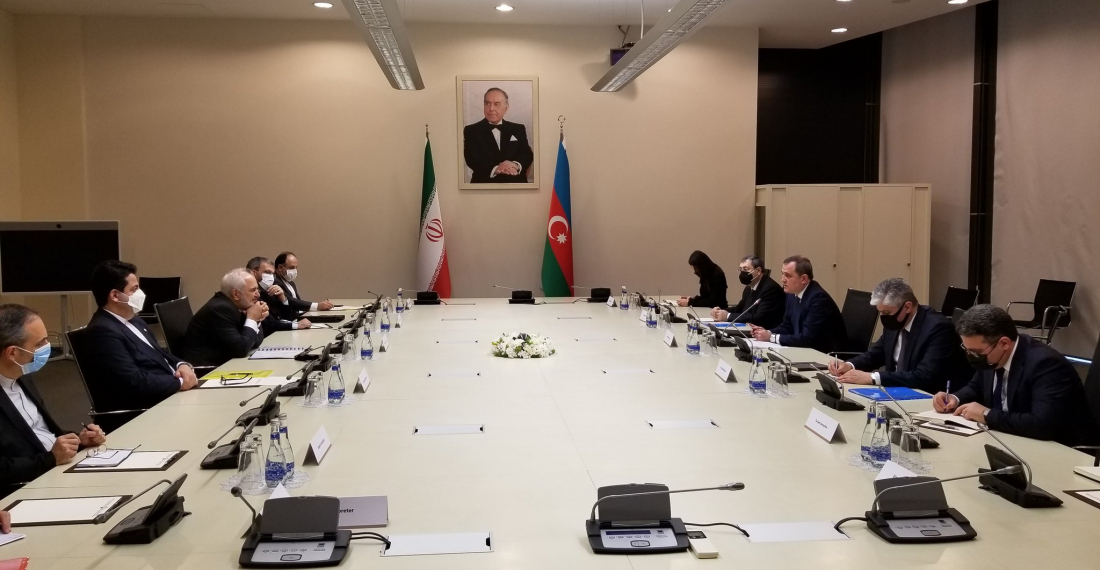Iranian Foreign Minister, Mohammed Javad Zarif, affirmed the readiness of Iran to actively take part in economic projects in Azerbaijan in the framework of Baku's regional cooperation plan. Zarif stressed that Tehran does not consider any limits for cooperation with Baku. The minister was speaking during his current official visit to Azerbaijan where he also met his Azerbaijani counterpart, Jeyhun Bayramov.
Zarif expressed pleasure at being in Baku and stressed Iran's readiness to actively participate in the reconstruction of territories recently regained by Azerbaijan, which are located close to the border of the two countries. Zarif also expressed satisfaction with the increase in meetings between officials of Azerbaijan and Iran in recent months.
Whilst in Baku, the Iranian Minister also met with President Ilham Aliyev who welcomed Iran's support for Azerbaijan's proposed regional cooperation plan.
The Iranian foreign minister on his part described the establishment of calm and peace in the region as a great opportunity for cooperation between the two countries on transit issues and for the activation of the East-West and North-South corridors.
A week ago, Iran and Azerbaijan signed a contract to bolster their economic cooperation as Baku welcomed Iran’s increased investment and technical assistance to rebuild regions around Nagorno-Karabakh. Iran media sources said that Iran is expected to provide technical and engineering services, electricity and energy, agriculture, know-how for clearance of the landmines as well as help with the reconstruction of mosques and historical monuments.
After his talks in Baku Foreign Minister Zarif will also visit Armenia, Georgia, Russia and Turkey. Iranian media sources say that he is scheduled to discuss bilateral issues, the latest developments in the Caucasus, joint projects and ways of promoting peace and stability in the region with his counterparts and other top officials of these countries.
Source: commonspace.eu with various Iranian news agencies.
Picture: A bilateral meeting between the Foreign Minister of Azerbaijan, Jeyhun Bayramov and Javad Zarif, Foreign Minister of Iran, in Baku. (Twitter: @AzerbaijanMFA).







